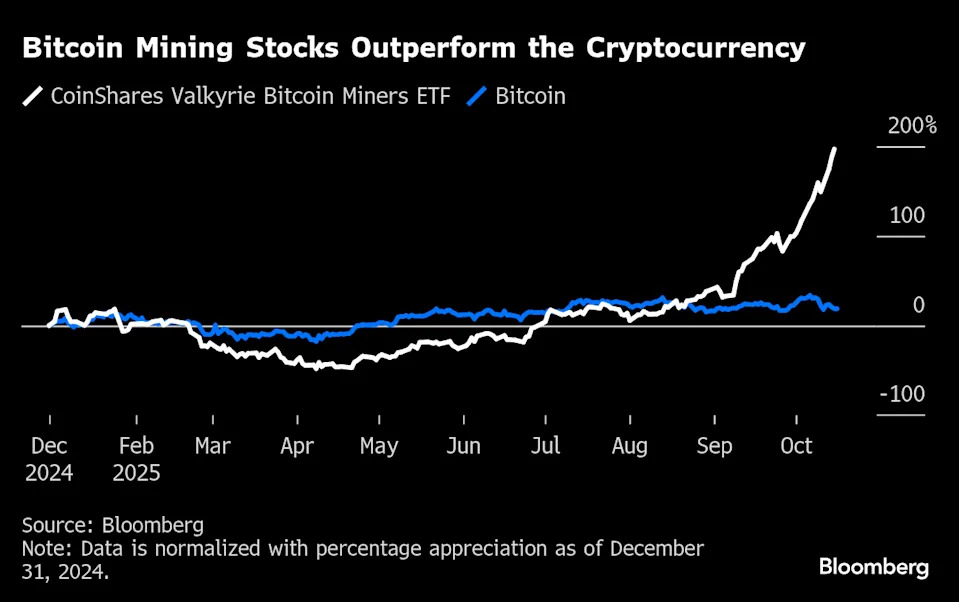
Crypto Miners Riding the AI Wave Are Leaving Bitcoin Behind
Key Points
- Bitcoin miners are outperforming Bitcoin itself, with a fund tracking listed mining firms soaring over 150% year-to-date in 2025, driven by a pivot to AI and high-performance computing (HPC).
- Companies like Cipher Mining Inc. and IREN Ltd. have seen share prices rise by 300% and 500% respectively, as they shift from pure Bitcoin mining to AI infrastructure, exemplified by major deals and convertible notes offerings.
- The pivot to AI/HPC is a response to squeezed profit margins from Bitcoin mining due to the 2023 halving, rising network difficulty, and low hashprice, pushing firms to prioritize energy efficiency over hashrate expansion.
- Analysts note that investors now value miners primarily for their AI/HPC potential, with revenue and margins significantly higher in these areas compared to traditional mining, leading to higher market multiples.
- Firms like Bitdeer Technologies are balancing mining with AI data center conversions, projecting substantial revenue growth, while others like Riot Platforms and Bitfarms pause hashrate growth to focus on energy utilization.
Summary
Bitcoin mining companies are outpacing Bitcoin's performance in 2025, with a fund tracking these firms surging over 150% year-to-date, despite Bitcoin's 14% gain and near-record highs. This success stems from a strategic pivot to artificial intelligence (AI) and high-performance computing (HPC), as miners like Cipher Mining Inc. and IREN Ltd. see share prices soar by 300% and 500%, respectively, through major AI infrastructure deals. Cipher’s $3 billion colocation agreement with Fluidstack and IREN’s $1 billion convertible notes offering highlight this shift. Bitdeer Technologies also plans to convert mining sites into AI data centers, projecting significant revenue by 2026. This transition is driven by declining mining profitability post the 2023 Bitcoin halving, which cut rewards and squeezed margins amid rising network difficulty and low hashprice. Investors now prioritize miners for their AI/HPC potential, where revenue per megawatt and margins far exceed traditional mining, leading to higher market valuations. Analysts note a focus on energy efficiency over expanding Bitcoin hashrate, with firms like Riot Platforms pausing growth to adapt to this new "energy economy." This marks a transformative phase where crypto mining and computing converge, redefining these companies as tech infrastructure providers rather than just Bitcoin miners.
yahoo
October 18, 2025
Stocks


